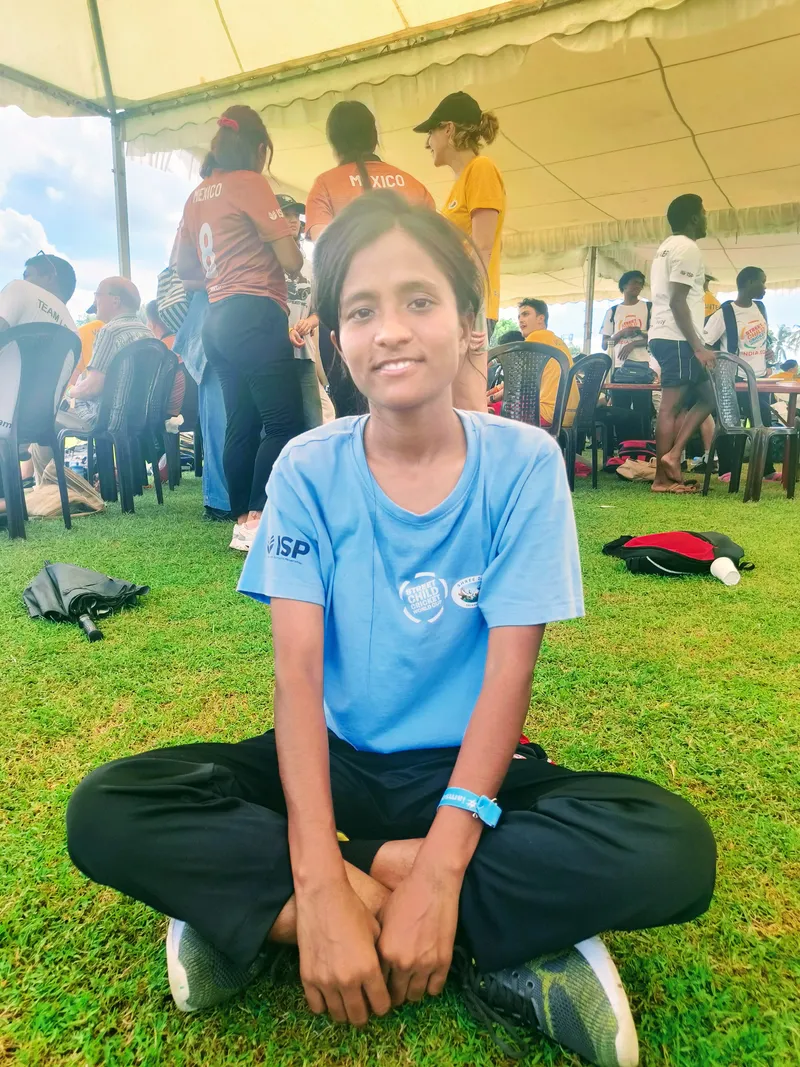This not-for-profit is using the power of sport to transform lives of vulnerable children
Street Child United, a UK-based organisation, has been empowering children from streets from across the globe through cricket and football championships.
At 21, Sopna Akter is the kind of leader her team, comprising teens and young adults, have grown to revere. Wise beyond her years, Akter was one of the most composed people on the ground in Amir Mahal, home to the Nawab of Arcot in Chennai, and the venue for the Street Child Cricket World Cup.
The second edition of this mega tournament, being held from September 23 to 30, was organised by Street Child United, a United Kingdom-based not-for-profit, along with Nawabzada Mohammed Asif, Dewan to the Prince of Arcot; Oliver Ballhatchet MBE, British Deputy High Commissioner in Chennai, and Save The Children-India.
Since 2008, Street Child United has empowered hundreds of children living or working on the streets with sports, higher education, and employment opportunities.
Bridging the gap
Akter, who was born in a small village in Bangladesh, is one of the champions and beneficiaries of its work. Having grown up with no memory of her parents, she fled her elder sister’s home when she was 10 years old, after her brother-in-law made sexual advances at her. She reached Dhaka, where she was taken in by Leedo Street Children, an NGO, which became part of Street Child United’s network for the Street Child Cricket Cup championship.

Sopna Akter, Street Child United champion, India
“I played my first tournament in 2019. It exposed me to people from around the world and the spirit for sports. It made me want to dream of a life that I hadn’t dared to dream of so far,” says Akter.
She is currently doing her second year of nursing in Dhaka, and aided by a partnership between Street Child United and Bristol University, she's all set to pursue her Masters in Nursing from there next year.
Empowering youth through sports
After hosting football championships for close to a decade, Street Child United organised the first cricket tournament in 2019 at Cambridge, which saw the participation of eight teams.
In the second edition this year in Chennai, close to 160 children from 19 teams, representing 13 countries played over the course of one week.
The energy on the ground was infectious with music, camaraderie, and hundreds of young people with a drive to express themselves through sports.
Street Child United was co-founded by John Wroe in 2011. He says the idea came to him after he met a boy on the streets of Bangladesh who said "people treated him like a human being when they saw him on the field playing football, as compared to off the field, where he was only a homeless child."
“After one of our football tournaments, when kids from the Pakistan team returned home and arrived at their airport, 700 people, joined by the Prime Minister, were waiting to welcome them at four in the morning,” recalls Wroe. “It made me understand that if these children were given opportunities, they would seize them and thrive. We have been using sports to give these children access to education and protect them against all forms of violence--including gender-based," he adds.
The NGO has tied up with University of Bristol and other NGOs to fund college education and employment opportunities wherever it is needed.
Street Child Cricket World Cup
In addition to India and Bangladesh, Brazil, Burundi, England, Hungary, Mauritius, Mexico, Nepal, Rwanda, South Africa, Tanzania, Uganda, Sri Lanka, and Zimbabwe took part in the tournament this year.
Seven mix-gendered teams from India--comprising three from Delhi and one each from Chennai, Mumbai, Kolkata, and Delhi--represented India at the Street Child Cricket World Cup this year.
One of these from Mumbai--India Cobra--supported by the NGO Magic Bus India Foundation, reached the semi finals along with Zimbabwe on September 30.
Zeenat, a member of this team, hasn’t been able to control her emotions. She comes from an orthodox Muslim family and has always faced resistance to play sports. “But it is while playing that I feel the happiest,” she says.
Zeenat began playing football in school and later took to cricket. With her mother’s support, she takes the bus to practice at a community ground after school every day.
“Till date, there are people in the family and community who tell my abbu that he shouldn’t let me go out wearing shorts and playing sports. But I make time to convince him over and over--no matter how many times I have to,” says the 16-year-old.

Paulraj, Street Child United champion, India
The tournament, which ended on Saturday, saw Uganda (which was pitched against Zimbabwe) take the trophy home. Paulraj, a 21-year-old team leader from Chennai who was part of the winning Indian team in 2019, says he had his heart set on victory this time too.
“But I don’t see this match as the end,” he says.
Paulraj grew up with a father who works at the fish market and mother who runs a tiffin centre in Chennai. With support from Karunalaya, an NGO working with vulnerable children, he says excelling in sports and travelling the world has bestowed respect on him and his family.
“People are condescending about slum children in general. My mother used to face a lot of flak from the police when she tried to set up her eatery. But now, they don’t say a word,” he says.
Paulraj has completed his Bachelors in Economics from Presidency College in Chennai, and now wishes to go abroad to do his Masters. “I finished my college with the help of Karunalaya (an NGO working with vulnerable children) and Street Child United. I got into sports because of them too. I don’t see a reason why I cannot find a way to fulfill this dream of studying abroad too,” he says.
“Sports makes it possible.”
Edited by Megha Reddy






